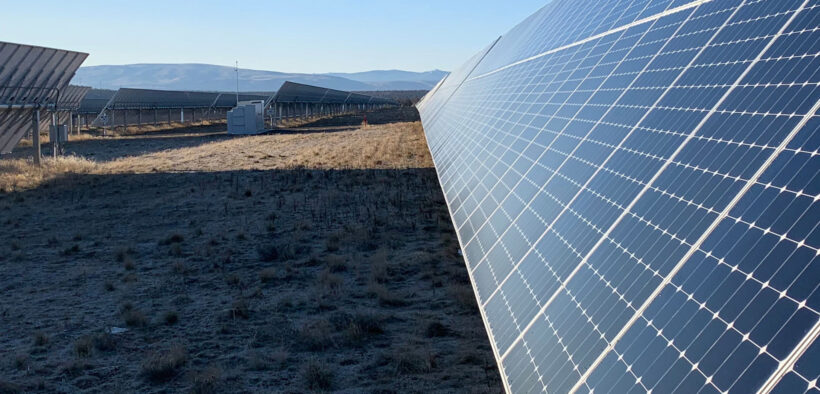Shedding Light on the Benefits of Solar Energy
Share

As a clean energy company, Avangrid Renewables is committed to creating a sustainable energy future. Our business strategy is built on an Environmental, Social, Governance and Financial (ESG+F) framework to make sure we continue to grow sustainably and make positive contributions to our communities while doing well by our customers, our communities, our colleagues and our shareholders.
Solar energy is the most abundant energy resource on Earth, and demand in the United States is strong and growing. In fact, the Solar Energy Industries Association (SEIA) reports that solar installations grew 43% in 2020, despite the impact of the COVID-19 crisis on our communities and the economy.
The investments that Avangrid Renewables is making in solar energy solutions will play an important role in tackling climate change globally while bringing jobs and economic opportunity to the communities in which we work. Continuing to grow solar generation capacity will be crucial to meeting the growing energy needs in the U.S., as well as helping the Biden Administration and states around the country meet the ambitious clean energy goals demanded by the people they represent.
Clean, Affordable Energy
In their Solar Market Insight Report, the SEIA estimates that burning fossil fuels to generate electricity accounts for more than a third of greenhouse gas emissions. Solar power generation capacity in the U.S. alone today reduces carbon emissions by more than 110 million metric tons each year. And solar energy is more affordable than ever thanks to advances in the industry. Today, solar facilities are more cost effective than other sources of power, which ultimately reduces costs for ratepayers.
Generating Jobs and Income
The benefits of cleaner, cheaper power and access to jobs and careers in the growing renewable energy industry are a boon to communities across the country. In 2020 alone, 231,474 people worked in the solar industry in the U.S. That number is expected to increase to 400,000 by 2030.
In addition to new job opportunities, solar delivers many direct economic benefits to local communities including tax revenue, lease payments to landowners, construction jobs and permanent maintenance technician jobs.
For example, in Gilliam County, Oregon, Avangrid Renewables is building the 162 MW Pachwáywit Fields solar generation facility – the largest in the state. At its peak, the project’s construction will generate approximately 300 jobs in partnership with local unions. When completed, Pachwáywit Fields will produce enough power to serve the equivalent of about 40,000 homes and will generate an estimated $1.3 million of taxes and property owner lease payments each year, benefiting the local economy for years to come.
“Solar is a great use for land with unproductive grazing inventory. There is a lot of that in Central Oregon and solar presents a big opportunity,” said Kevin Spencer, a landowner at the Gala Solar facility in Prineville, Oregon.
“Solar power is a win-win-win for the people of Washington,” said Commissioner of Public Lands Hilary Franz, the elected official who oversees the Washington State Department of Natural Resources. “It generates significant revenue for our schools while creating jobs and providing clean, affordable energy to our homes and businesses.”
Deep Roots in the Community
“Avangrid Renewables is in this for the long-term,” said Brian Walsh, director of business development at Avangrid Renewables. “It’s important for us to have good relationships in the communities where we will be invested for the life of a project, which can be 30-40 years.”
As a $100 million investment for the company, Lund Hill will be the biggest solar project in Washington state and have a capacity of 150 MW, all of which will supply customers of Puget Sound Energy’s innovative Green Direct renewable energy program. Those customers include the state of Washington, local governments, and other companies including Costco, T-Mobile, and Kaiser Permanente.
“This is an incredible example of the public and private sector coming together to transform the trajectory of renewable energy in Washington state,” said Gov. Jay Inslee. “This project will help us fight climate change, create clean energy jobs and save agencies thousands of dollars in energy costs. This is what Washington’s energy future is all about.”

